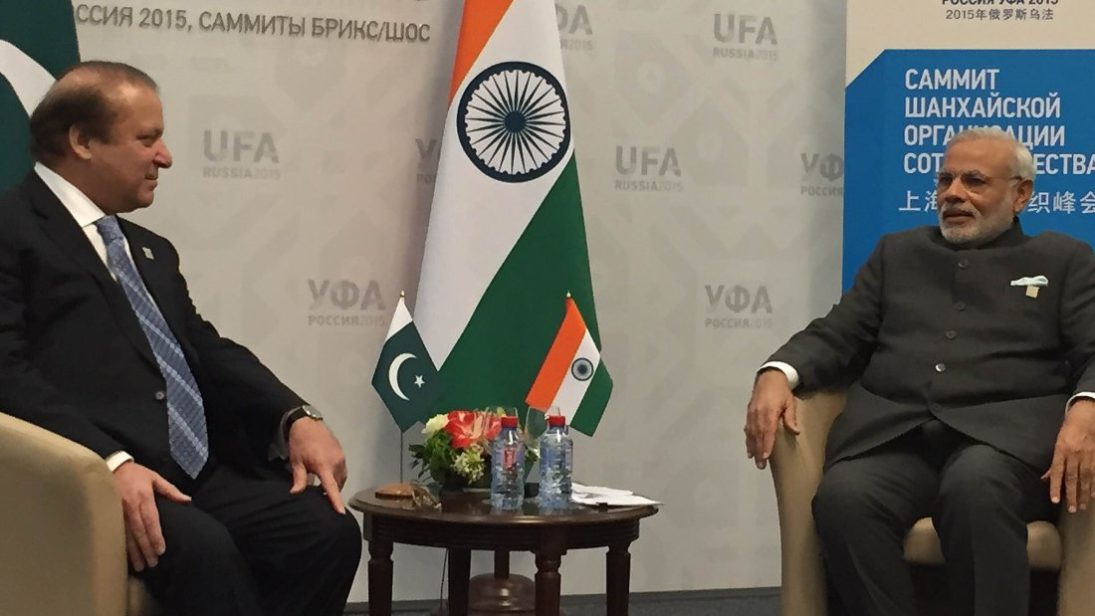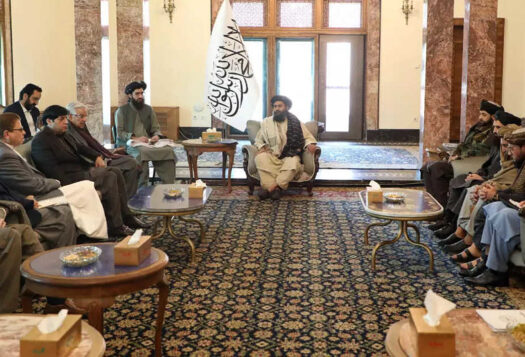
Even before the NSA-level talks had started catching eyeballs in India and Pakistan, Yashwant Sinha called it the “dialogue of the deaf.” In the end, it has turned out to be not just deaf, but blind as well. There should be no question that a higher proportion of the blame lies with Pakistan, whose insistence on talking to the Hurriyat faction, and including Kashmir in the ambit of the discussion, was a deliberate attempt at scuttling the talks. The Ufa statement, which set the basis for the talks, read—“India and Pakistan have a collective responsibility to ensure peace and promote development,” and to accomplish that “they are prepared to discuss all outstanding issues.” Pakistan contends that “all outstanding issues” includes Kashmir. True, this in all probability may be an allusion to Kashmir, which has not been directly mentioned in the joint statement. But the statement subsequently mentioned that the two sides agreed to “a meeting in New Delhi between the two NSAs to discuss all issues connected to terrorism.” It is evident that the ambit of the talks was limited to terrorism. The “outstanding issues” could have been discussed as a logical follow-up to these discussions.
Indian External Affairs Minister (EAM) Sushma Swaraj very articulately stated that the spirit of Ufa must be respected, setting a midnight deadline for Pakistan to respond. It was only a matter of time before Pakistan had to either suffer a loss of face, having publicly stated its position and then backing down from it, or take the onus of calling off the talks.
Pakistan’s contention that the EAM’s attempt to draw a “distinction between preambular and operative paragraphs in the Ufa statement appears to be an after-thought to justify a position that is counterproductive in terms of the ultimate objective of reducing tensions and improving trust” is a fallacious argument. The Ufa statement explicitly mentions “NSA level talks for all issues connected to terrorism.” The Pakistani statement also mentioned that, “considering that many terror ‘incidents’ blamed initially by India on Pakistan eventually turned out to be fake, it is not improbable that India can delay the Resumed Dialogue indefinitely by concocting one or two incidents and keeping the LoC hot.” This is wide off the mark, as it hasn’t been long since the Udhampur and Gurdaspur attacks took place, and even if there was some truth to it, it calls into question Islamabad’s very intent to engage New Delhi if it were this distrustful.
Pakistan’s double standards were amply exposed a few days ago when, as the host of the Commonwealth Parliamentary Conference (CPC), it refused to invite the speaker of the Jammu and Kashmir State Assembly. Business Standard reported that “Pakistan was to host the [CPC] for the first time from September 29 to October 8 in Islamabad, but when the Commonwealth unanimously voted against Islamabad’s decision not to invite the Speaker of the Jammu and Kashmir State Assembly for the CPC, Pakistan, refusing to budge from its stand, cancelled the proposed meeting.” It is hypocrisy of the highest degree to insist talking to one preferred shade of opinion in the political landscape of Jammu and Kashmir and to project them as the true representative of Kashmiris, while refusing to even host the other.
The other dimension to this chaos is that each side wanted to evade the onus of cancelling the talks; they were more than happy to put the ball in the other’s court. This game of chess was played in full public view, with constant media briefings, and India’s foreign ministry seems to have held its ground, despite some initial bungling. Narendra Modi and National Security Adviser Ajit Doval, however, should not bask in glory either, since diplomacy conducted to appease the masses and satisfy their nationalistic urges cannot lead to conflict resolution. It can, at best, lead to a mutually hurting status quo. If the agenda of the NSA-level talks was limited to terrorism, then India should not have lost sleep over Sartaj Aziz’s meeting with the Hurriyat leaders. That discussion, which was not even a trilateral, could not have possibly had any ramifications on the NSA talks if the agenda was limited to terrorism. A bargain could have been struck here. Ever since Modi has taken over, the comprehensive dialogue process has not been resumed. He has tried to draw a red line for Pakistan by pressuring it to avert talks with third parties, and insisted that the nature of the talks must conform to the Lahore Declaration and Simla agreement, implying the bilateral nature of talks. This needling by both sides and unnecessary diplomatic posturing is an affront to peace, and has essentially impeded a meaningful, substantive dialogue that could have resulted in concrete benefits for the people of the two countries. Modi’s policy on Pakistan has seen the pendulum swing from one extreme to another. Now that Pakistan has wriggled out of the talks, one wonders that if engagement isn’t an option, then what is? If there is an offensive doctrine in place, then the government surely hasn’t operationalized it, for that would obliterate the very need for talks.
There is debate in India on whether terrorism from Pakistani territory is a logical corollary of not solving the Kashmir issue. The other side of that debate is that even if the Kashmir issue is solved, there will be no reduction in terrorism exported from Pakistan. The main reason cited for this is the civilizational war that Pakistan is engaged in with India. But this is very much putting the cart before the horse. It goes without saying that the fundamental issue that Pakistan wishes to talk with India is Kashmir, and much of the terrorism directed at India stems from Pakistan’s desire to change the status quo in Kashmir. It is therefore a foregone conclusion that peace on the subcontinent can be given a chance only if India agrees to talk Kashmir with Pakistan. One way or another, this is an issue that needs to be resolved peacefully. India and Pakistan have been blind to the plight of the Kashmiris. Ultimately, in this game of one-upmanship, it’s the people of Kashmir who are caught in the cross-fire.
***


